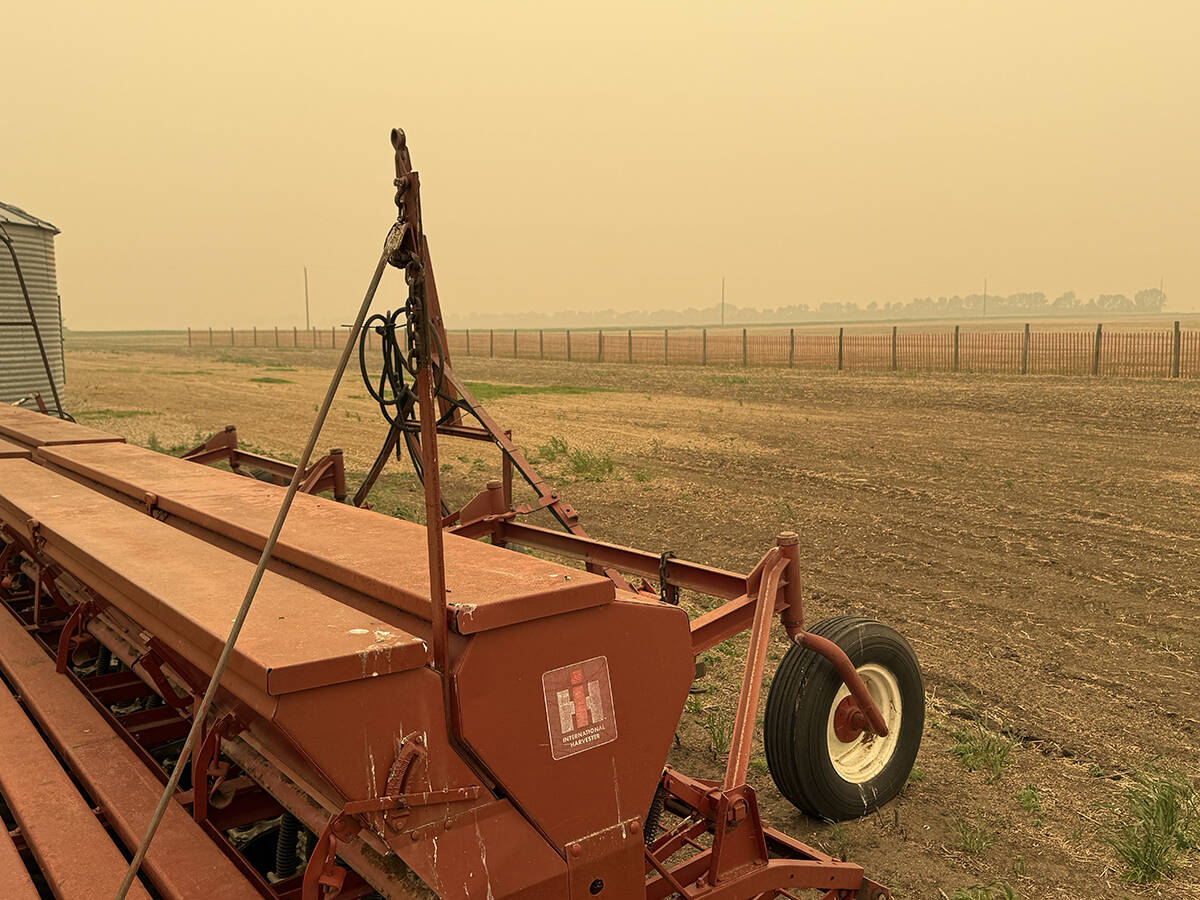Farmers might have to wait months to find out what the railways and other defendants have to say about Gordon Wallace’s freight rate lawsuit.
All four defendants named in the statement of claim filed Jan. 13 by the Unity, Sask., farmer declined to comment last week.
The statement of claim alleges that railways have overcharged farmers for hauling grain for at least two decades.
Wallace’s lawyers are seeking to have the case certified as a class action and will argue the defendants should provide restitution to all producers who shipped grain during that period.
Read Also

Wildfires have unexpected upside this year
One farmer feels smoke from nearby wildfires shrouded the July skies and protected his crop from the sun’s burning rays, resulting in more seeds per pod and more pods per plant.
Spokespersons for the four defendants – Canadian National Railway, Canadian Pacific Railway, the federal government and the Canadian Transportation Agency – said they would make no comment while the case was before the court.
All four said they would present their arguments in statements of defence to be filed with Court of Queen’s Bench in Saskatchewan at the appropriate time.
Exactly when that will happen is up in the air, said Wallace’s lawyer, Joel Hesje of the Saskatoon firm McKercher LLP.
Under normal circumstances a defendant must file a statement of defence within 20 days if served within the province and 30 days if served outside the province.
However, the process is different for a class action suit.
Defendants are not required to file a statement of defence until the case has been certified as a class action, a process that could take as long as six months, Hesje said.
“The rationale is that until it is certified as a class action there is no case.”
The defendants are free to file their defence earlier if they wish to, he added, but that’s not likely.
Meanwhile, a number of farm groups have expressed support for Wallace.
“I do think it’s high time somebody tried to hold the railways accountable,” said National Farmers Union president Stewart Wells.
However, he added the issue of railway costs should never have been allowed to reach this point.
A broad consensus of grain industry groups, including the NFU, has for several years asked the federal government to initiate a full costing review of the railways’ grain business.
“If this goes ahead as a class action suit, it really means we’re trying to do through the courts what should have been done politically by various federal governments over the years,” said Wells.
He said he was pleased to see the suit includes the government and the CTA, saying they should be held accountable for ignoring the cost issue for years.
Maureen Fitzhenry of the Canadian Wheat Board said the lawsuit has “caused quite a buzz” around the board’s offices.
The board has focused on a costing review as the way to ensure that freight rates under the revenue cap are based on up-to-date and accurate costs, she said, but the lawsuit is trying to get at the same thing.
“The main point is farmers and those who represent farmers are all of the opinion that something is wrong and something needs to be done.”
She said it’s too early to say if the board would become directly involved in the lawsuit, as an intervener or adviser.
“All I can say at this point is we are morally supportive of Mr. Wallace’s position.”
Sinclair Harrison, president of the Farmer Rail Car Coalition, which was responsible for bringing the hopper car maintenance issue to public attention in the late 1990s, said the suit might unearth more railway cost issues.
“There’s a lot at stake and I think it will be good to set the record straight as to what did happen.”
He cautioned it will be a long, expensive battle, given the railways’ track record in defending themselves in court cases and regulatory disputes.
“I just hope I live long enough to see the outcome,” he added with a laugh.
Keystone Agricultural Producers president Ian Wishart said he’s not surprised the issue has ended up in court, adding he hopes the suit succeeds.
“If it’s determined that there has been a substantial overpayment over a long period of time, it clearly should be repaid to farmers.”














